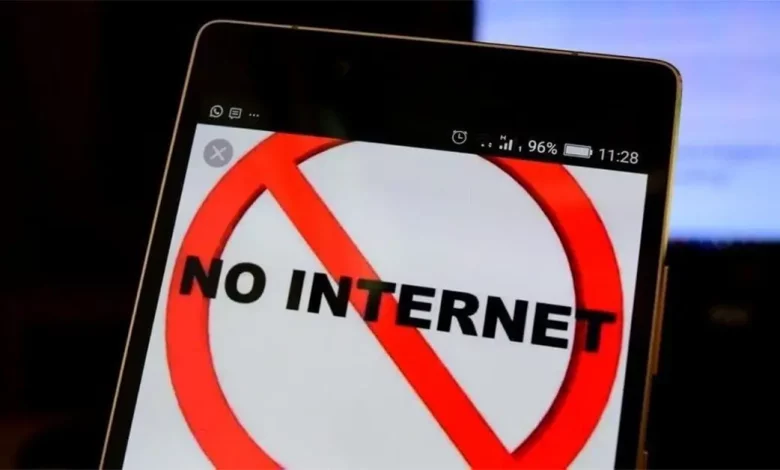Daily Current Affairs for UPSC
Suspension of Internet services in India
Syllabus- Polity & Governance (GS Paper-2)

Context- The Supreme Court has recently questioned the Union Territory of Jammu and Kashmir about the nonpublication of orders regarding the suspension of Internet services in the UT.
About
- In the past few years India had long gone through several violence acts as a result of certain legislation with the aid of the Union Government including The Citizenship Amendment Act, abrogation of Article 370 and so on. That could have resulted in Internal Aggression.
- Due to which it becomes the need of the hour to shut down the internet offerings to hold peace.
- It has emerged as very not unusual practice for regulation enforcement organizations and even for the Government to cut down the internet throughout the moment of tension.
Legal Provisions
- Till the year 2017, shutdowns were imposed largely under Section 144 of the Code of Criminal Procedure (CrPC).
- Section 144 of CrPC gave the police and the District Magistrate the powers with the intention to prevent illegal amassing of human beings and additionally to direct any person to abstain from a certain activity.
- However, in 2017 the law was amended and the Government promulgated the Temporary Suspension of Telecom Services (Public Emergency or Public Safety) Rule 2017.
- Under the 2017 Rules, telecom/internet shutdowns may be ordered on grounds of public emergency and public safety.
- Public emergency and public safety have no longer been defined in the 1885 Act or the 2017 Rules.
Arguments in Favour of Internet Shutdown through the Government
- National Security: The government may also assert that suspendinginternet services is a temporary and targeted measure to prevent the spread of incorrect information, coordinate illegal activities, or deal with security threats.
- Preventing Unrest and Violence: Suspending online communication helps prevent the organization of protests, riots, or other forms of civil unrest.
- Counteracting Fake News and Disinformation: During times of crisis or conflict, false information circulating online can exacerbate tensions and make contributions to misinformation.
- Temporary and Targeted Measures: Supporters may also emphasize thatinternet shutdowns are meant to be brief and narrowly targeted.
- These measures aren’t meant to infringe on long-term access but rather to address specific and immediate concerns.
Arguments Against the Internet Shutdown through the Government
- Impact on Freedom of Expression: Internet shutdowns infringe upon the freedom of expression assured by the Indian Constitution.
- Economic Disruptions: India has a rapidly growing digital economy, and internet shutdowns can lead to significant economic losses.
- The notion of frequent internet shutdowns may additionally impact tourism and alternate, as a strong and available virtual surroundings is vital for commercial enterprise operations and attracting visitors.
- Educational Challenges: With the growing use of online platforms for training, internet shutdowns can severely affect college students’ access to learning resources, online classes, and communication with teachers.
- Healthcare Consequences: Access to healthcare records, telemedicine services, and health-related updates may be hampered during internet shutdowns.
- Social and Political Implications: Internet shutdowns are frequently associated with tries to control social unrest, protests, or political opposition.
- Critics argue that such measures can stifle democratic dissent and limit the right to peaceful assembly.
- Global Image and Investment: Frequent Internet shutdowns can affect India’s global picture, raising concerns among investors and international partners.
- A perceived lack of digital freedom and balance might also deter overseas investments and collaborations.
- Human Rights Concerns: Critics assert that internet shutdowns raise human rights worries, which includes the right to access to facts, freedom of speech, and the right to peaceful assembly.
- Lack of Transparency: Some critics argue that the government needs to provide clean justifications for such moves and talk transparently about the length and reasons for the shutdown.
Conclusion
- In a democracy Governments have to offer a cause for disrupting the internet services in a periodic way.
- The publications of all of the orders need to be made to hold transparency.
- Indiscriminate shutdowns have high social and monetary fees and are frequently ineffective.
- A proportionality and necessity check analysis to determine the proper course of motion are important at this juncture.
- For better internet governance the Indian civil society needs to push for a transparent and responsible system.
Source: The Hindu





.png)



